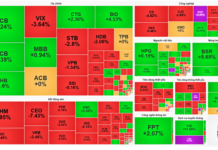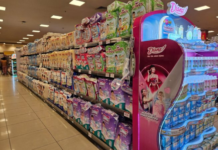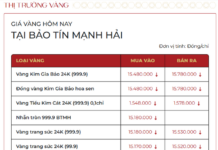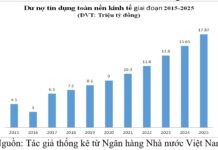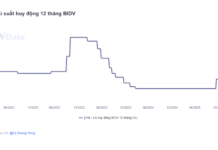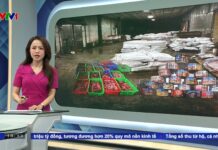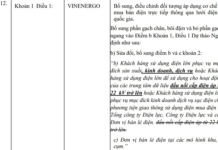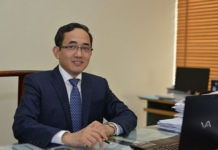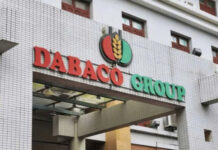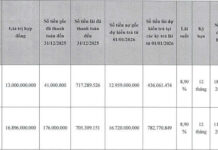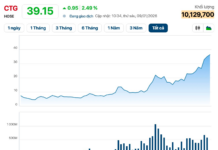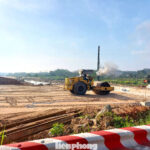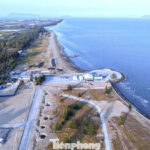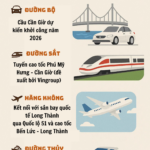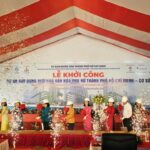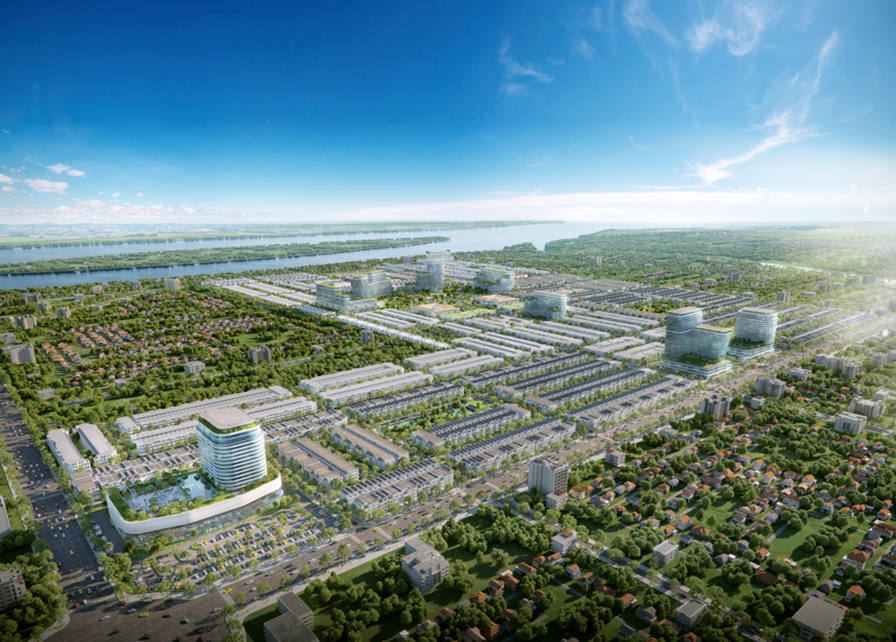Deposit Payment and Re-Auction Possible
The Thu Thiem Eco Smart City project, located in Functional Zone 2A (now An Khanh Ward, Ho Chi Minh City), was proposed in 1997 with an investment capital of over 20.1 trillion VND. This complex is planned to include a financial center, services, and a multi-functional residential area, expected to become a significant highlight in the heart of Thu Thiem.
This project has faced numerous challenges over the years. However, the public was still surprised when Lotte abruptly requested to halt the project just over a month after receiving the land use fee notice—16.19 trillion VND. In a document dated August 20, Lotte stated that the decision to discontinue the project was made after a “comprehensive evaluation and careful discussion among investors.”
Just nine days after expressing their intention to stop the project, Lotte began to reconsider. To continue the project, Lotte’s representatives proposed three requests to Ho Chi Minh City: adjusting the equity ratio among group subsidiaries, allowing external investors with a maximum stake of 35%, and waiving the additional 5.4% tax. This indicates that after a moment of hesitation, the company’s motivation to return was driven by favorable conditions for their business.
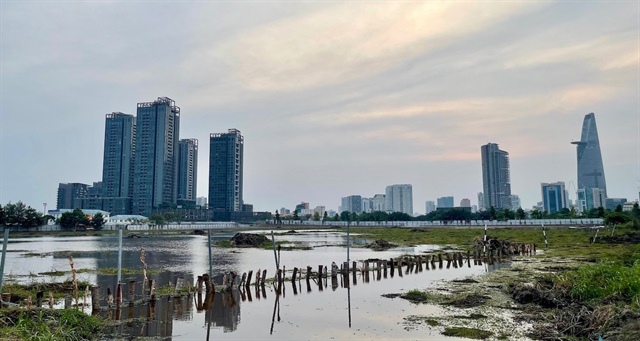
The fenced-off land of Lotte’s project. Photo: Tran Chung |
“Not ideal,” commented Dr. Huynh Thanh Dien (Nguyen Tat Thanh University) in an interview with VietNamNet. He believes that if Lotte genuinely wishes to terminate the contract, the Ho Chi Minh City government could consider approving it, as prolonging this indecision sets an unfavorable precedent. An attractive investment environment does not mean investors can act entirely on their own terms.
Resolving Lotte’s issues is necessary, but it must be done with respect for and compliance with the law, embodying the spirit of “harmonious benefits and shared risks.” This is the only way to build a sustainable, fair, and reliable investment environment for all businesses, regardless of their origin.
Increasing Localization to Support Domestic Enterprises
Broadening the perspective from Lotte’s case, Dr. Huynh Thanh Dien argues that excessive favoritism toward foreign investors in many sectors has created a development gap between foreign and domestic enterprises. These two sectors lack connectivity and operate almost like separate economies within one.
Therefore, preferential policies should be applied uniformly rather than tailored to specific cases. Regulations for foreign investors should even be more stringent.
Assoc. Prof. Vo Dai Luoc, former Director of the Institute of World Economics and Politics, also noted that Vietnam’s policies are too lenient toward foreign investors, offering benefits like low land rents and tax incentives.
He pointed out that in China, there are not many 100% foreign-owned investors. The Chinese government requires foreign investors to form joint ventures with domestic companies if they wish to invest. Additionally, 100% foreign-owned enterprises are typically limited to high-tech sectors.
According to Assoc. Prof. Luoc, former Singaporean Prime Minister Lee Kuan Yew once shared with him Singapore’s policy toward foreign investors. Singapore primarily offers incentives to investors from Europe and the United States, while Asian investors receive no special treatment and are treated the same as domestic enterprises.
No More Delays to Avoid Further Waste
Over the years, not only Lotte’s project but also over 100 other real estate projects in Ho Chi Minh City have been halted for years due to delays in determining financial obligations.
Barriers and challenges are being actively addressed. The head of the Government has repeatedly emphasized that corporations and real estate businesses should proactively review and restructure their investment portfolios to align with societal needs, ensure compliance with ongoing projects, reduce costs, and resolve difficulties. They must take responsibility for concentrating resources to overcome these challenges and complete necessary legal procedures.
Bold reforms are essential to thoroughly address these issues, ensuring budget revenue, creating a transparent and fair investment environment, and promoting sustainable development to meet the housing needs of the population.
Once procedural and administrative hurdles are fully resolved, the Government and local authorities will no longer need to “encourage” or “compromise” with individual investors, avoiding negative precedents and perceptions of unfairness among potential investors.
Land is a unique resource, holding both economic value and the potential to drive development. The high-value project on Thu Thiem’s prime land, a modern highlight along the Saigon River, has been fenced off for years. Now is the time for decisive action without further delay.
Mr. Nguyen Quoc Bao, Chairman of the Ho Chi Minh City Real Estate Club, stated that if Lotte decides to halt the Thu Thiem Eco Smart City project, they will forfeit their deposit. The city can then re-initiate the land auction process in accordance with current laws. Vietnam is not short of potential investors in the real estate sector.
Tran Chung
– 09:30 06/10/2025
Unveiling the $260 Million Southeast Vietnam Drainage and Flood Control Project
The Suoi Cai Drainage Axis project in Ho Chi Minh City, with an investment of nearly VND 6,000 billion, is a transformative initiative. Designed to address flooding and improve drainage in the former industrial hub of Binh Duong, this project extends its benefits to the entire Southeast region. Flanking the drainage axis are newly constructed roads, complete with sidewalks and greenery, enhancing both functionality and aesthetics.
Ho Chi Minh City Vice Chairman Directs Action on Proposed Can Gio – Vung Tau Sea-Crossing Road
Bùi Xuân Cường, Vice Chairman of the Ho Chi Minh City People’s Committee, has tasked the city’s Department of Finance with leading the review and proposal for a feasibility study on a sea-crossing route connecting Can Gio and the former Ba Ria – Vung Tau area. The project is to be developed under the Build-Transfer (BT) model. Collaborating with relevant departments and units, the Department of Finance is expected to submit recommendations to the city’s People’s Committee by October 10.
Centrifugal Wave: Elevating Luxury Living in Eastern Ho Chi Minh City
The Ho Chi Minh City real estate market is entering a new phase of growth, with urban trends shifting significantly towards satellite areas. In this context, the Eastern region has emerged as a strategic focal point of the “super regional metropolis,” poised to capture the wave of investment and settlement from a new generation of residents through high-end projects.

